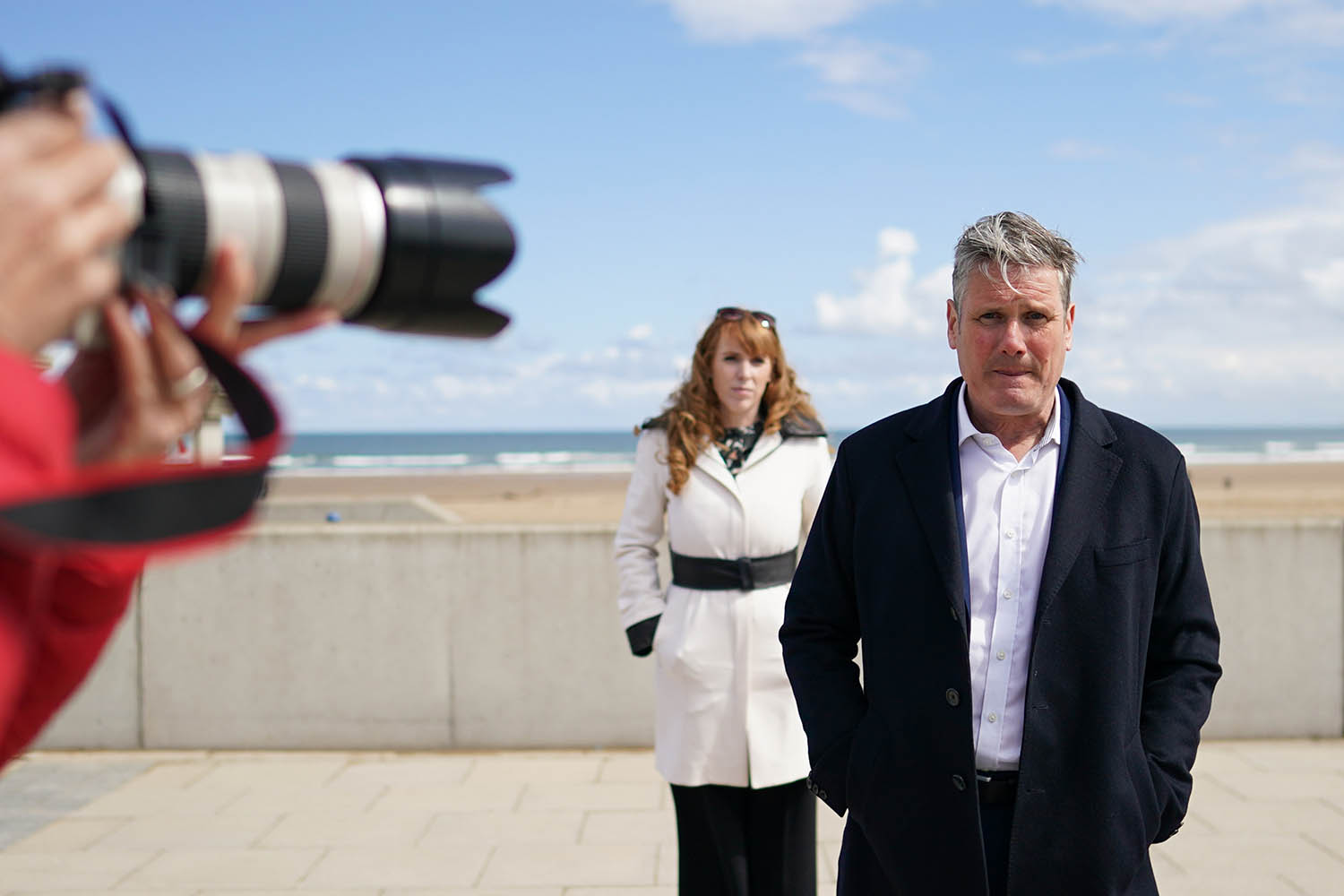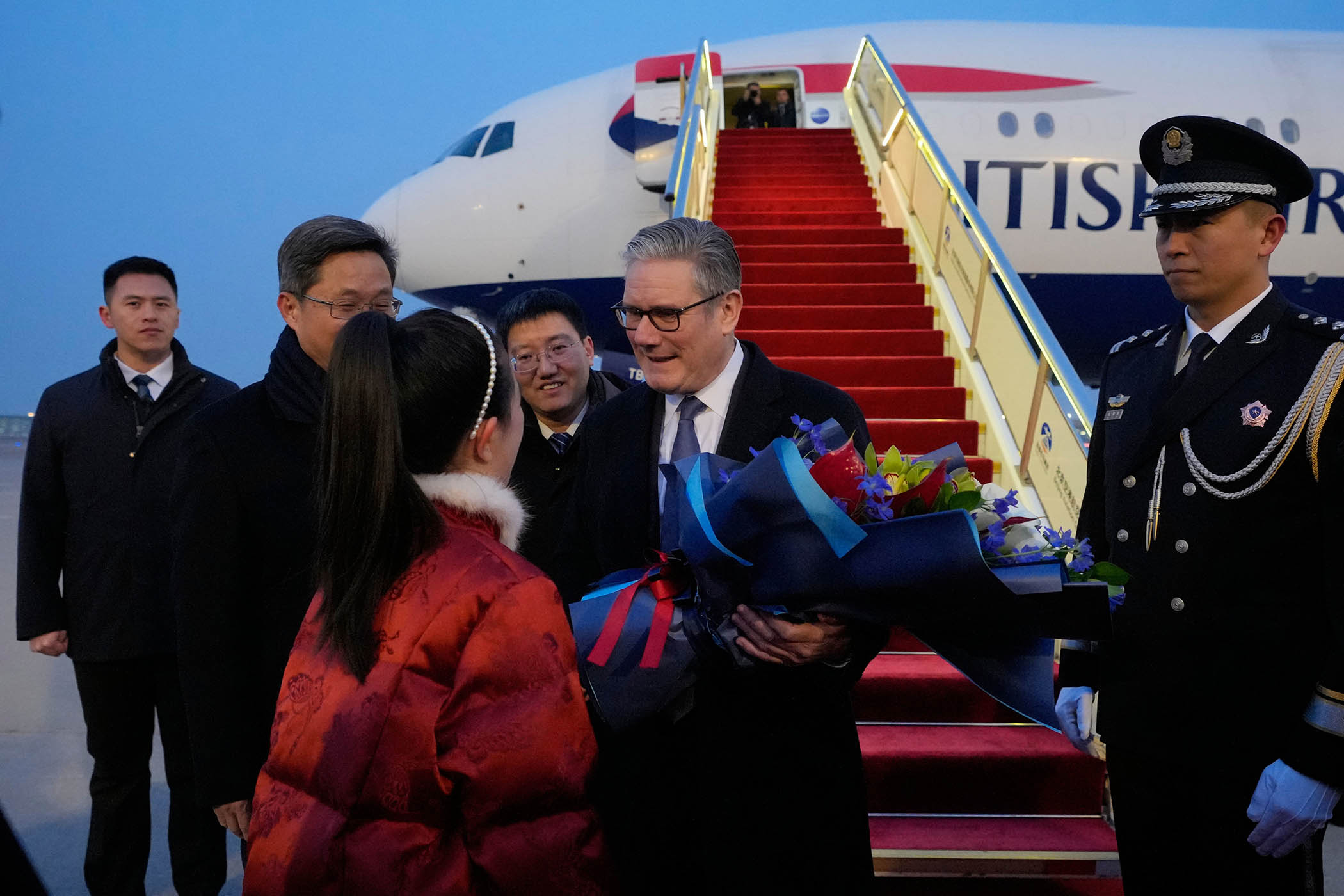A giant electronic whiteboard dominated the No 10 study as Keir Starmer and his closest advisers planned their first major reshuffle last week. Names were moved effortlessly around between departments on the touch screen as the prime minister’s new cabinet took shape in the wake of Angela Rayner’s resignation.
For veterans of the Blair era, the “super-whizzy” technology was a revelation. “In the old days it was Post-it notes,” one said, “and there was a time when Downing Street called up the wrong peer by mistake to offer him a ministerial job.”
The digital age may finally have reached Whitehall, but the fundamentals of politics have not changed. This reshuffle, like so many before it, was all about power, ambition and survival.
The loss of Rayner was a huge blow to the government and to the prime minister personally, as the handwritten note to his former deputy showed, but Starmer acted swiftly to seize the initiative.
With 10 Whitehall departments getting a new secretary of state, Charlie Falconer, the former Labour lord chancellor, said the prime minister had delivered a form of “electric shock” therapy to his government. John Healey, the defence secretary, is the only member of Starmer’s original 2020 top team who is still in the same job.
That Britain is on its ninth foreign secretary and 13th justice secretary in 15 years does not create an impression of stability or encourage good government. The gilt-trimmed lord chancellor’s gown, which had to be shortened by 14 inches and pinned up with safety pins for the diminutive Shabana Mahmood, will now have to be lengthened again just 14 months later for her successor David Lammy.
The reshuffle was not a shift to the left or right, it was a move towards the fixers and doers. The priority for No 10 was to put the most effective ministers in charge of the areas where the government is struggling most – tackling illegal immigration, curbing the spiralling benefits bill and improving relations with business. One Labour source said: “It’s true that Keir has never liked Yvette [Cooper]. She’s very difficult to work with – prickly and indecisive. But the main thing is that Keir knows that he needs to sort out small boats and welfare reform and Shabana [Mahmood] and Pat [McFadden] are the two ministers he thinks deliver for him.” The most significant changes are in the Home Office. There has been a virtual clearout of ministers with Angela Eagle, the immigration minister and Diana Johnson, the policing minister, moving to other departments.
In recent weeks, Downing Street has become increasingly frustrated with Cooper, who has failed to either stop the flotilla of boats crossing the Channel or close the asylum hotels. The prime minister was determined to move her, but that meant flattering her with an apparent promotion to the Foreign Office which would be hard to turn down. Mahmood, who replaced her at the Home Office, had impressed No 10 with her handling of the prisons crisis at the Ministry of Justice. “She’s taken on a difficult brief that could have been nothing but trouble and been extremely diligent and efficient in dealing with it,” one source said. “She managed the policy but also the politics.”
Related articles:
The new home secretary is said to be ready to “think the unthinkable” on small boats and asylum hotels, including changing the law to clarify the way in which the European Convention on Human Rights is interpreted by judges in asylum cases. “A lot of people who are second-generation immigrants whose family came here the legal way and who played by the rules feel very aggrieved by what they see happening on small boats and in asylum hotels,” said one ally.
The reshuffle was about more than personalities and the policy implications are broad. The introduction of a universal digital ID system is now all but inevitable. As home secretary, Cooper was resisting the plan but her successor Mahmood has “always been supportive”, insiders say.
The appointment of McFadden, one of Starmer’s most trusted allies, to run a new superministry, combining the Department for Work and Pensions with responsibility for skills transferred from the Department for Education, is a sign the prime minister still hopes to drive through welfare reform, while recalibrating the government’s approach to avoid another Commons defeat. Steve Reed, another energetic Starmer loyalist, takes over the housing department with allies promising that he intends to “build, build, build”.
Peter Kyle, the new business secretary, has been told to restore links with business leaders who are angry about the rise in employer national insurance contributions and new workers’ rights. “Labour’s relationship with business has not been its strong suit. His role will be to improve that,” one No 10 source said. He speaks fluent business.” Jason Stockwood, a businessman and chairman of Grimsby Town Football Club, which recently beat Manchester United against the odds, has been appointed the new investment minister and given a life peerage.
Labour’s deputy leadership contest will ensure the political direction of the government remains centre stage, although by making Lammy deputy prime minister, Starmer has detached the government and party roles. Wes Streeting, the health secretary, has told friends he does not intend to stand for the deputy leadership.
The Labour left will struggle to get enough nominations, but there is likely to be a candidate from the soft left, highlighting tensions in the party about the current approach being taken by No 10. One Labour source suggested Starmer had been forced into pursuing a “Lady Gaga dress strategy”, a reference to the singer’s outfit made of steaks. “He’s been a pescatarian forced to eat red meat for the red wall.”
Critics are sceptical that a Cabinet reshuffle which some in the the Labour party think more closely resembles Lewis Carroll’s mad hatter’s tea party, in which the same people randomly move around the table talking in riddles, than Harold Macmillan’s Night of the Long Knives will “shift the dial” for the prime minister without a clearer message. “Drama, but to what purpose?” one former minister said.
When Starmer opened the cabinet away day at Chequers in July, he surprised ministers by talking not about politics but about his family. He explained how his sister, who works as a carer, had been forced to take holiday time off when she got Covid during the pandemic. He lamented that his brother, who died last year, had been judged throughout his life because of his learning difficulties. One cabinet minister recalls: “He said: ‘People ask why do I do this? What’s the point? And the reason I’m doing it is to give more dignity and life chances to people like them’. It was a side of him that even his cabinet colleagues hadn’t seen before.” A No 10 source said: “Keir is most animated by the idea of giving opportunities to young people, or improving social mobility and respect regardless of background. That’s his driving philosophy.”
With a new cabinet and Downing Street team in place, Starmer has to use his party conference speech and the budget to communicate this “irreducible core”. “Politics is about using your voice and Keir doesn’t make the argument,” one Labour peer said. “We are focusing too much on Reform [rather] than rebuilding trust with voters. The question he has to answer is – what kind of country does he want Britain to be?”
Photograph by Ian Forsyth/Getty
Newsletters
Choose the newsletters you want to receive
View more
For information about how The Observer protects your data, read our Privacy Policy



